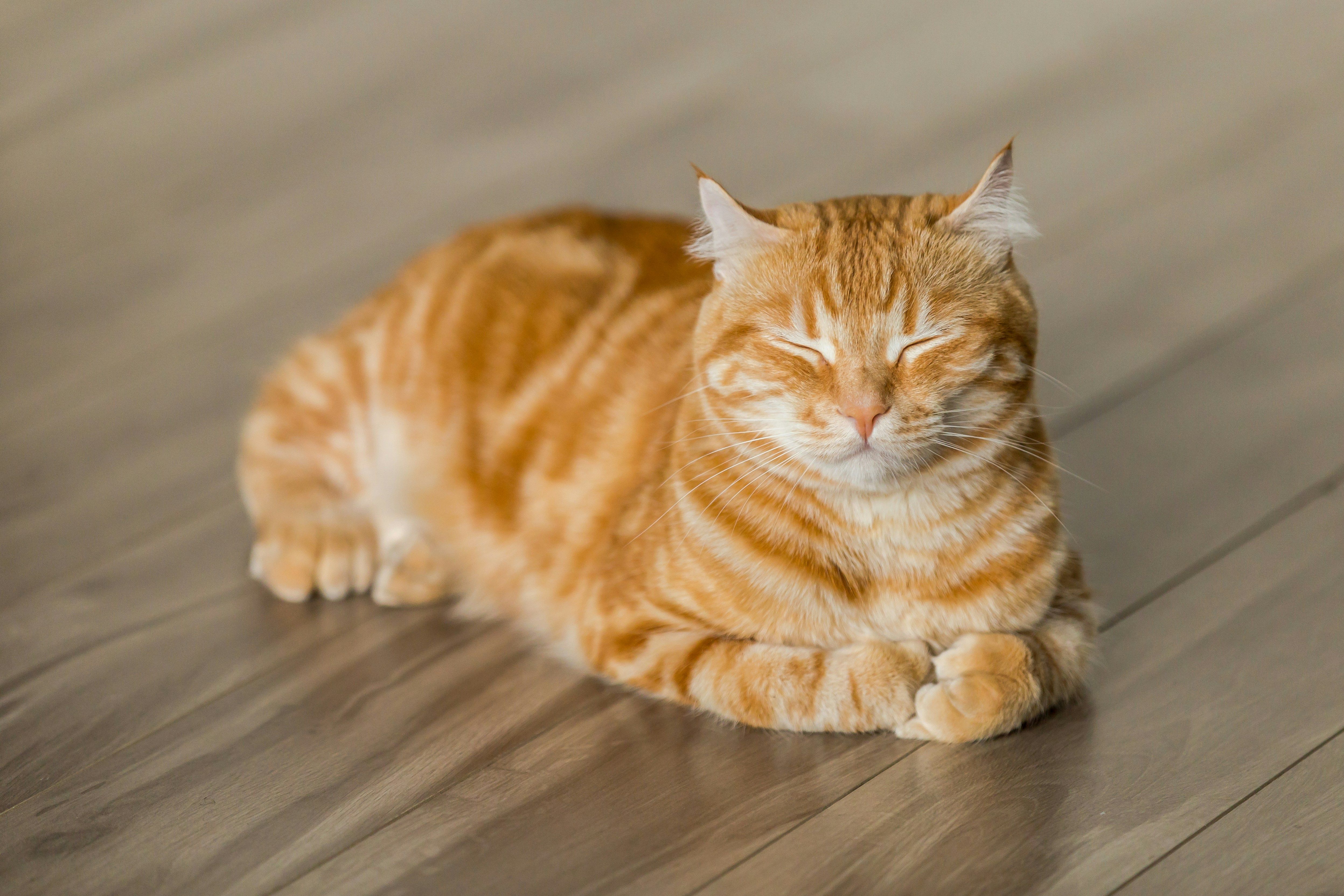I once had a cat that would drool when being pet, napping next to me, usually with her head down on my hand. I had never understood that. Then I found myself thinking of Homer Simpson and those pictures of him drooling over donuts. It occurred to me that Gracie must be just as happy. But while a slight bit of drool here and there is normal, cat drooling can sometimes be a sign that something not so innocent is occurring. Here’s what you need to know about why cats drool, and when it’s time to see a vet.
Typical Causes of Drooling in Cats
Grooming: Cats frequently drool when they groom themselves.
Activity or Relaxation: Similar to Gracie, some cats drool when they’re feeling very relaxed, happy or content, especially during cuddling or petting.
Treats and Food: Drooling is more commonly seen in dogs than in cats. It’s not unusual for a pet to drool excessively while waiting for dinner. If your pet licks up treats, there’s no need to worry about the drooling.
When Cat Drooling is a Symptom of a Problem
Some of the most common reasons for cats to drool are related to their dental or oral health issues:
- Gingivitis and Periodontal Disease: Inflammation and irritation in the gums and deep oral structures can create significant discomfort, leading to excessive saliva production.
- Trauma: If your cat has been involved in a fight or blunt trauma, it may have suffered a wound or laceration to its mouth, which could result in drooling. Trauma can also result in tooth or jaw fractures, leading to drooling secondary to pain or the inability to close the mouth.
- Stomatitis: Stomatitis is severe inflammation of the soft tissues lining the mouth, including the tongue, gums, cheeks and lips. This inflammation is so severe it causes pain, redness, swelling and ulcers. This can lead to trouble eating, resistance to closing the mouth, and ultimately, drooling.
- Oral Ulcers or Burns: When painful ulcers develop, it can be due to several factors. These factors include foreign body ingestion, burns (thermal or chemical), infection, or metabolic diseases like renal disease. The drooling that occurs is a reaction to the pain and discomfort caused by the irritation. Some signs that there could be a dental or oral problem include bad breath, pawing at or avoiding the mouth, refusing to eat or chewing unequally and red (or puffiness) around gums or tartar build-ups.
- Nausea and Gastrointestinal Problems: Conditions that cause nausea or vomiting, like gastrointestinal problems or motion sickness, can be other culprits behind drooling.
- Plants: Your cat, and kittens in particular, will naturally want to investigate bits of plants or fallen leaves. Poisonous plants can be corrosive and orally irritating, leading to direct irritation and ulceration of the mucosa. Other plants, like lilies, cause systemic disease (renal failure), which can lead to nausea, gastric ulceration, and oral ulceration.
- Toxins: Other toxic compounds like cleaning products or anti-freeze, act systemically, causing nausea and salivation.
- Medications: Have you ever tried to pill a cat? As soon as they get a small taste of a tablet or foul-tasting liquid medication, they start to foam and drool. Doxycycline is an example of a medication which, if given incorrectly, can cause esophageal stricture, which can lead to trouble swallowing and ultimately drooling.
- Foreign Objects in the Mouth: A piece of string, a splinter, or a bone fragment can get stuck in your cat’s throat or mouth, causing heavy saliva production.
- Stress and Anxiety: Physical symptoms exhibited by stress in cats can include drooling. These are usually noticed during car rides to the vets, any changes in routine or environment (even something as simple as moving your dog food bowl), loud noises and guests visit.
When It’s Time to Visit the Vet
While an occasional bit of drooling may not be anything to worry about, keep a watch out for any other signs that might suggest there is something more serious going on. If your cat’s drooling is sudden and ongoing or excessive, lasting over 24 hours, it’s a concern. If it is accompanied by other symptoms, such as bad breath or pawing at the mouth, that’s also a warning sign. Difficulty eating or chewing, discoloured, bloody, or foamy saliva, and refusal of food should not be ignored. Lethargy and noticeable swelling around a facial area are additional symptoms to watch for. In any of these cases, it’s best to contact your vet right away. Timely treatment for related medical problems is critical to ultimately relieve your cat of drooling.
The treatment of drooling is mostly governed by the underlying cause:
- Dental Problems: Recovery can include professional cleaning, extractions or antibiotics for infections and inflammation.
- Poison Exposure: Treatment may consist of decontamination, medications to ease oral pain, and fluids to remove toxins from the body.
- Nausea: Anti-nausea medicine and supportive therapy can help with in the issue.
- Trauma: Surgical intervention, analgesia and wound care may be necessary.
Prevention Tips: Regular professional dental check-ups and cleanings. Regular ‘at home’ oral exams as well, preferably on a daily basis if possible. Keep poisons and flowers, pills, cleaning products and cords, out of reach. Observe your cat’s demeanor and report on any differences.
How Ruby Veterinary Urgent Care Can Help
Occasional drooling during grooming and relaxation is natural for domestic cats. However, continued or excessive drooling often signals an abnormality. This may be related to their dental health, overall health, or the surrounding environment. In such cases, veterinary care is necessary.
At Ruby Veterinary Urgent Care, we take pride in the high level of care that we offer to your beloved cats. From diagnosing dental issues to treating systemic problems, we are prepared to treat many conditions. Keep an eye on your feline companion’s conduct and if you suspect your cat of drooling, don't be shy to call for help. When you understand the possible reasons for drooling and address them with veterinary care when necessary, you can maintain your feline friend's happiness and wellness.

